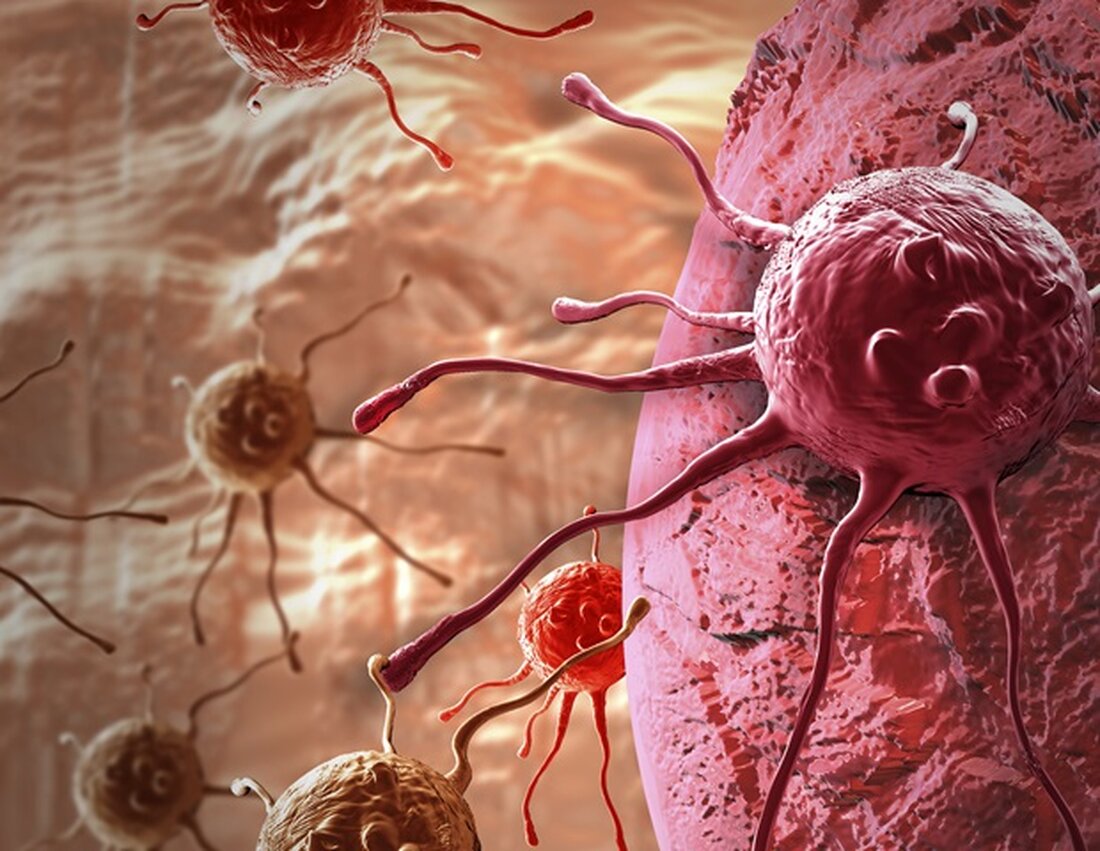Northwestern Medicine scientists discover new gene target for aggressive lung cancer
Northwestern Medicine scientists have identified and described a new gene responsible for activating an aggressive subtype of small cell lung cancer, the P subtype, for which there is currently no effective treatment. This type of cancer is resistant to many drugs and there are not many studies looking at it. By identifying this important gene, we now have a very good drug target to work with.” Lu Wang, lead study author, assistant professor of biochemistry and molecular genetics, Northwestern University Feinberg School of Medicine “It is devastating for patients and their families when we...

Northwestern Medicine scientists discover new gene target for aggressive lung cancer
Northwestern Medicine scientists have identified and described a new gene responsible for activating an aggressive subtype of small cell lung cancer, the P subtype, for which there is currently no effective treatment.
This type of cancer is resistant to many drugs and there are not many studies looking at it. By identifying this important gene, we now have a very good drug target to work with.”
Lu Wang, lead author of the study, assistant professor of biochemistry and molecular genetics, Northwestern University Feinberg School of Medicine
“It is devastating for patients and their families when we tell them that there is no effective treatment for this type of cancer,” Wang said.
Part of the problem is that treatment for small cell lung cancer has remained relatively unchanged, relying primarily on chemotherapy. Most patients develop chemoresistance, Wang said, affecting the overall effectiveness of the limited treatment options available and leading to cancer recurrence.
The gene the scientists discovered is essential for this tumor subtype to thrive, Wang said, based on a genome-wide CRISPR screen. When Wang's team deleted this gene in small cell lung cancer cells in vitro and in mice, the cancer cells could not survive. Scientists plan to develop a drug that disrupts the gene's function to treat this subtype of lung cancer in patients.
They named the gene POU2AF2 based on the novel functions they report in their new work.
“Our ultimate goal is to implement a more personalized approach to the clinical treatment of small cell lung cancer by targeting mechanisms that contribute to tumor growth based on factors that regulate molecular subtypes,” said Wang, who is also a member of the Robert H. Lurie Comprehensive Cancer Center at Northwestern University.
The study will be published October 5 in the journal Science Advances.
According to the American Cancer Society, lung cancer remains the leading cause of cancer death in the United States. An estimated 131,880 deaths are forecast for 2022. More people die from lung cancer each year than from colon, breast and prostate cancer combined.
Despite improved screening and medical advances in the treatment of lung cancer overall, lung cancer is still primarily diagnosed in later stages when the tumor has spread to other parts of the body, making treatment more difficult. This dilemma is particularly the case with small cell lung cancer, an aggressive form of lung cancer that is diagnosed in late stages in 70% of cases, Wang said.
The scientists' findings may potentially serve as a biomarker to identify this subtype of small cell lung cancer at earlier stages.
Additional authors from the Northwest include co-lead author Zibo Zhao, co-first authors Aileen Patricia Szczepanski and Natsumi Tsuboyama, and co-authors Dr. Jun Watanabe and Dr. Rintaro Hashizume.
This study was supported by the NIH Maximizing Investigators' Research Award (MIRA) R35 grant (R35GM146979), the American Cancer Society Research Grant (RSG-22-039-01-DMC), and the Lynn Sage Cancer Research Grant.
Source:
Reference:
Szczepanski, AP, et al. (2022) POU2AF2/C11orf53 functions as a coactivator of POU2F3 by maintaining chromatin accessibility and enhancer activity. Scientific advances. doi.org/10.1126/sciadv.abq2403.
.

 Suche
Suche
 Mein Konto
Mein Konto
